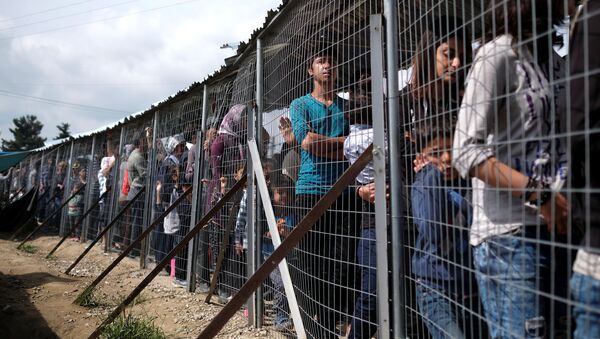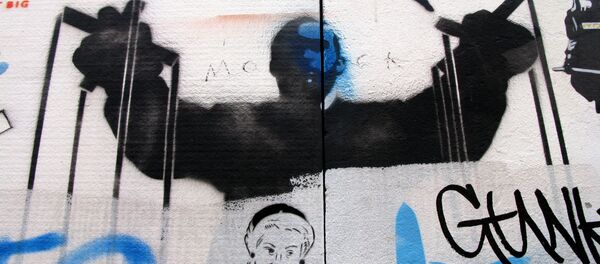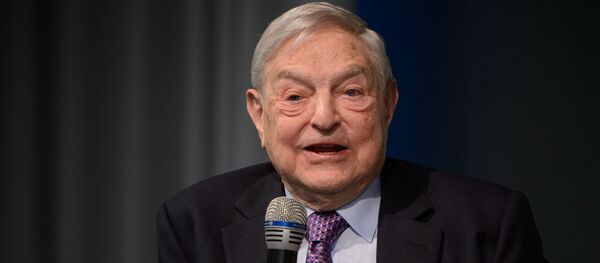A third of them are being subsidized by the European Union and the Open Society of George Soros, a “network of foundations, partners, and projects in more than 100 countries,” the political analyst explained.
The Hungarian-American billionaire and speculator, Carayon reminded, gained notoriety in the past for having broken the Bank of England in 1992 – earning $1.5 billion in just a single month by betting the British pound and several other European currencies were overpriced against the German deutsche mark.
He was the same very man to attack the Thai and Malaysian currencies in 1997 and to speculate against the franc in 1993.
His fortune is immense, valued at nearly 25 billion dollars, the politician says, and the income from his capital was and still is being used to fund “color revolutions” and NGOs, including those advocating the refugee influx into Europe (spending around one billion dollars per year for this purpose).
Carayon explains that The Open Society of George Soros and Washington-based US think tank “Migration Policy Institute” have published a joint report “Welcoming Engagement: How Private Sponsorship Can Strengthen Refugee Resettlement in the European Union.”

The report, he says, welcomes the European Commission’s engagement and encouragement of private sponsors and NGOs to resettle over-quota migrants in the EU member states.
Another NGO directly involved in the crisis is the Brussels-based "Platform for International Cooperation on Undocumented Migrants" (PICUM), which has considerable influence within the European institutions.
It recently came up with a guide, following the directive of the European Union “on the rights of the victims,” on an advance access of undocumented migrants to protection services, and justice. This time again, Carayon says, the NGO is funded by the European Union and the Open Society.
The third organization is the NGO Oxfam, which regularly cooperates with the Open Society. Together they finance the “Enough is enough” movement in Senegal, which, in fact, is a “customary attempt” of Soros to launch a “color revolution” in the country.
This NGO is particularly supported by the European Union, which paid it €75.3 million in the 2013-2014 financial year, the French political analyst states.
In October 2015, Oxfam published the report “Solidarity with the Syrian people” where it demanded France step up its resettlement programs, criticizing Paris for not contributing enough to the refugee programs and advocated the acceleration of procedures for family reunification, the acceleration of community sponsorship arrangements and opportunities for fellowship and pay based on work.
Another actor in support of immigrants is the “UNITED for Intercultural Action”, a network, composed of leftist activists and funded by the Council of Europe, the European Commission and the Open Society.
Another very influential think tank working on the issue is the US think tank” European Stability Initiative” which, in fact, is behind the October 2015 “Merkel Plan.” This plan recommends Germany welcome more migrants and issue them no-cost visas to move freely across the country.
“Behind this obscure think tank, we still find the Soros Open Society, the Rockefeller Brothers Fund and other American financiers,” Carayon says.
And so everything brings us back to the very same man, George Soros, he concludes, who is also behind the so-called Panama papers scandal.
Through these NGOs he puts weight on European institutions and government programs, such as the one forced on Germany to host illegal migrants.





